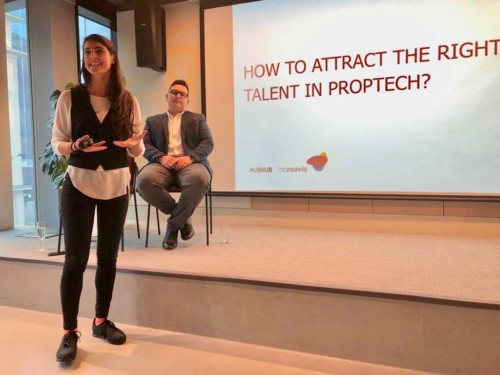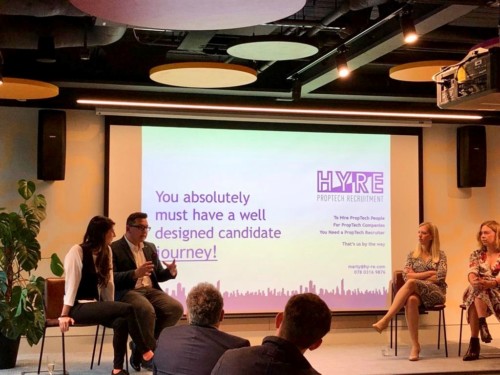How to attract and retain talent in proptech
Proptech is changing the way we buy, design and manage spaces all across the globe, so in September we were delighted to host some of London’s leaders in proptech at HubHub, 20 Farringdon Street to discuss the importance of attracting and retaining talent in the rapidly growing industry.
A recent IBM report evaluating workforces around the world and surveying over 5,670 global executives identified an increasing awareness of the widening skills gap following the arrival of new technologies in the workplace. Executives in 2016 ranked technical core capabilities for STEM (Science, technology, engineering and mathematics) and basic computer and software/application skills as the top two most critical skills for employees. By 2018, the same executives valued behavioural skills — willingness to be flexible, agile, and adaptable to change and time management skills and ability to prioritise.
The report also found that over half of the businesses it analysed had no skills in development strategy in place and that roughly 120M workers may need to be reskilled or retrained in the next three years in the face of AI and intelligent automation.
Gaia Arzilli, Innovations & Partnerships Lead at HB Reavis opened the event by referencing this important study and spoke about the huge importance of real estate companies becoming adaptable and resilient in the age of automation. “We fundamentally need to understand how changes in machine learning and digitalisation, from 2020 onwards will drastically change how we attract talent in real estate. It’s vital for the success and sustainability of our companies that we are attracting and retaining a workforce with a blend of technical and digital expertise.”

Kate Hammar, Real Estate Practice Leader at Per Ardua, spoke on the carelessness of real estate companies reacting to the growth of proptech. “We shouldn’t be afraid to look across at other industries to learn best practices, the arrival of new proptech is provoking similar questions within the financial industry for example. We need to learn how to embrace the skills that are becoming essential in supporting this paradigm shift”. Kate pointed out that the most innovative real estate companies are those that have expertise in real estate and tech embedded from the beginning of the company, bringing together knowledge from across sectors.

Marty Sim, co-founder of Hy.re, a leading proptech recruitment firm gave his perspectives from a start-up background, discussing the current market and most importantly, how proptech start-ups can ensure they recruit the right talent. Marty highlighted the need for recruiters to create a well-designed candidate journey and not just a basic job description in order to attract the perfect proptech candidate. “Instead of giving someone a job description, educate them on the company culture and let them experience what it will be like to work there, demonstrate how they can grow in the company and how that will support the company’s growth as a result.”
Built-ID is one of the most exciting new examples of proptech to emerge in recent times, so it was wonderful to have Community Engagement Director Bridget Wilkins provide some invaluable insights on transitioning from a large corporate company to a tech start-up. “The trend I am noticing is that the people currently leading the way in digital real estate aren’t coming from real estate backgrounds, many of the industry leaders have backgrounds in tech… it’s about a personal evolution, people want to continue to grow and work in something that they are passionate about, even if that means changing industry entirely.”

The panel discussed the ways in which traditional real estate companies can continue to thrive in the face of the technological revolution and most importantly, how we still have an opportunity to adjust and prepare for the growth of AI and intelligent automation in our workplaces. At HB Reavis we believe the key to attracting and retaining talent is to create a nourishing company culture and an environment that facilitates growth and productivity.
Thank you to everyone that joined us and contributed with their knowledge and thought-provoking questions for our proptech discussion. If you would like to find out more about HubHub, 20 Farringdon Street you can the website here.
